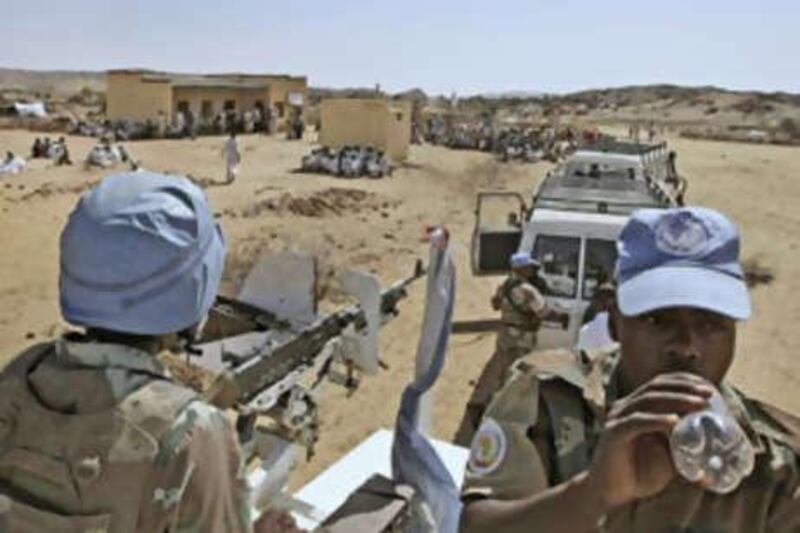WASHINGTON // A survey of seven majority-Muslim countries shows widespread support for a more powerful United Nations, even amid dissatisfaction with the world body's performance on several fronts and a belief that it is in effect dominated by the United States. An average of 63 per cent of those surveyed indicated a desire for the United Nations to "do more" to "promote human rights principles", the same percentage that favoured giving the UN the authority to go into countries to investigate violations of human rights. Moreover, nearly two-thirds said the UN Security Council had the responsibility - including through the authorisation of the use of military force - to protect people from severe human rights abuses "even against the will of their own government". Overall, respondents also indicated general support for giving the UN the power to regulate the international arms trade and maintaining a standing UN peacekeeping force trained and commanded by that body. The survey was conducted in Azerbaijan, Egypt, Indonesia, Iran, Jordan, the Palestinian territories and Turkey by WorldPublicOpinion.org, a project of the University of Maryland's Program on International Policy Attitudes. It was carried out in two phases earlier this year; not all of the questions were asked in all of the countries. Overall, 6,175 people were interviewed in the first phase and 5,363 in the second; a total of 11,538 respondents participated in the study. The first phase was conducted from Jan 12 to Feb 18, though in two nations it was completed in late 2006. The second phase for all nations was completed July 21 to Aug 31. While supporting broader powers for the 192-member UN, many respondents simultaneously expressed discontent with the international body on a number of issues. An average of 53 per cent said its efforts to resolve the Israeli-Palestinian conflict were "not helpful", while another 12 per cent said they had no impact either way. Forty-five per cent said the same of UN attempts to resolve the crisis in the Darfur region of Sudan. Majorities in Egypt (68 per cent), the Palestinian Territories (63 per cent), Jordan (59 per cent) and Turkey (53 per cent) said they believed the UN is dominated by the US, agreeing with the statement the US "basically controls the UN and can almost always make the UN do what the US wants". Steven Kull, the director of WorldPublicOpinion.org and the Program on International Policy Attitudes, said while many in the Muslim world expressed disappointment with the UN, that is not to say they do not support its founding principles and ideals. "Some people assume Muslims are against the UN per se," Mr Kull said, but that is not the case. "They want a UN that's strong enough to stand up to the US, that's robust enough that it can't be dominated by the US and it can go in and deal with issues like the Israeli-Palestinian conflict." Mr Kull said the survey highlighted "how much Muslims are supportive of - and even inspired by - the ideals associated with the UN". eniedowski@thenational.ae
Survey points to Muslim support for a stronger UN
Majority of respondents said world body should do more to protect human rights even as many found faults with other initiatives.

More from the national




